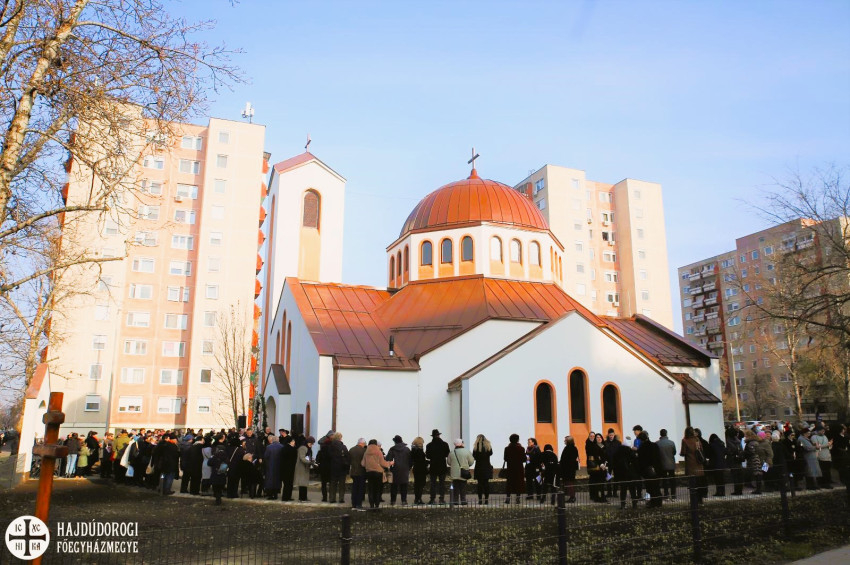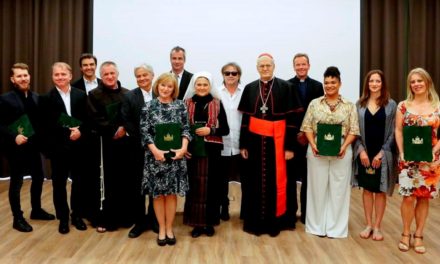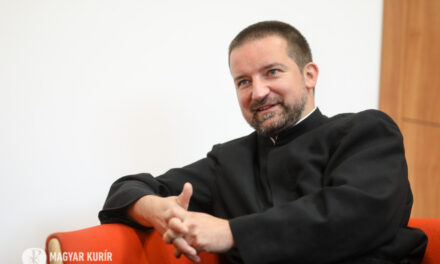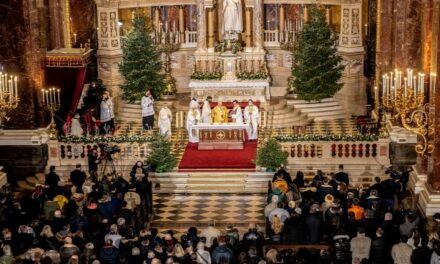The consecration of the new church in Debrecen-Tócoskert, with a floor area of about 250 square meters and a capacity of 200 people, was carried out together by Archbishop-Metropolitan of Hajdúdorog Fülöp Kocsis, Atanáz Orosz Orosz of Miskolc and County Bishop of Nyíregyháza Ábel Szocska. Ferenc Palánki, head pastor of Debrecen-Nyiregyháza joined the ceremony on December 3 and Fekete Károly, also the bishop of the Tiszántúli Reformed Church District .
In recent years, the Archdiocese of Hajdúdorog received significant state support for the construction of the Holy Trinity Church, thanks to which the community of the district can now enjoy its own church by reallocating its own resources. The investment was realized from about HUF 380 million.
Bishop Abel Szocska gave the homily at the festive Holy Liturgy. "The kingdom of God is among you!" - this is where his teaching started.
The head pastor of the Nyíregyháza Diocese asked for God's blessing on all those who labored and sacrificed for the construction of the new church. Everyone else's task should be to deliver the message that the church proclaims, the Good News, to as many people as possible, so that as many of us as possible can find God.
Azbej Tristan, the state secretary responsible for helping persecuted Christians and implementing the Hungary Helps Program, celebrated with the people of Tócóskert.
As he said: it is an uplifting feeling to experience that new churches are being built in our country and our communities are being strengthened. Traveling around the world through the mission of Hungary Helps, he experienced in many places that the basic element of the survival of Christian communities is that they have a place to gather. He reminded: in many places one cannot practice religion freely, as more than three hundred million Christians are persecuted today. These people risk their lives when they attend mass, while in Western Europe, due to lack of interest, churches are demolished or converted into entertainment venues, and Christian monuments are removed from public spaces in the name of so-called political correctness. Extremist organizations in the Middle East or Africa equate holy places with the ground.
Source: Hungarian Courier
Featured image: Archdiocese of Hajdúdorog













